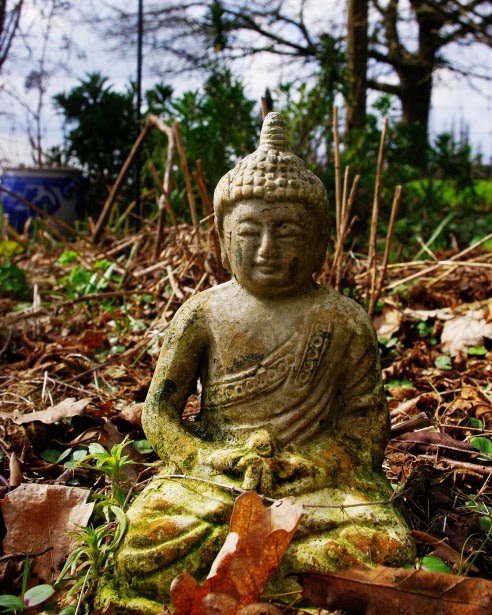VI. THE MISSIONARY APPROACH TO MODERN BUDDHISM IN SOUTHERN ASIA
To Find More Interesting Resources Click below :
|
1. Modern Buddhism differs from the Theoretical Buddhism of Gotama.
There is a marked difference between the theoretical Buddhism of early days, reflected in the standard literature of Southern Buddhism, and the Buddhism of the present day in Southern Asia. The Buddhism which Western enthusiasts are eager to introduce into their own countries is something which they have learnt, not from the peoples of Buddhist lands, but from the ancient literature of Buddhism. Captivated at first, it may be, by the beauty of some isolated saying, or, possibly, deeply touched during some moonlight scene at the great golden pagodas of Burma or on the hillsides of Ceylon, they become eager and not infrequently learned students of the Buddhism of Gotama. They have to declare with sadness that the great bulk of the people who profess Buddhism have wandered very far from its true principles and practice, and that human nature, for the most part, needs something less austere.
This old Buddhism of the Books may be regarded and used as a kind of Old Testament for Buddhists; already they have passed away from its traditions.
2. The Central Emphasis of Buddhism varies in the Three Southern Countries.
To Find More Interesting Resources Click below :
|
Not only does Buddhism, as the missionary comes in contact with it, differ very markedly from theoretical Buddhism, but the central emphasis varies in different parts of Southern Asia. The student must know his country and his people in order to know their Buddhism, as well as vice versâ. Nothing can be further from the sunny temperament of the Burmese than the central "truth" of Buddhism that "all is sorrowful"; and it is a strange perversion of the truth which claims, as some of these Western writers have claimed, that the Burmese are optimistic because they are free from tanhā. The fact that they believe in a good Buddha as a living god, however, has much to do with it: and temperament has even more.
In Ceylon, while Buddhist ideals are better suited to the more melancholic temperament of the people, yet they are acutely conscious of their powerlessness to gain the victory over sin and sorrow unaided. As in Japan and China, so in a lesser degree in Burma and Ceylon, Buddhism has been constrained to die to itself (to substitute the idea of a saviour for the idea of earning one's own salvation) in a way that is full of encouragement and suggestion to the Christian. For, if the mythical Kwanyin and the far-off Metteya can so captivate hungry human hearts, how shall not the historic and living Christ be enthroned in their stead?
3. The Qualities of Missionaries to Buddhists.
The life of a missionary to Buddhist peoples is full of interest. Each people has many attractive qualities and the life has much of delight. Certain special qualifications may be worth mentioning:—
(a) A Genuine Sympathy.—A missionary will make very little impression upon the people and especially upon their leaders in Buddhist countries who is unable to think himself, to some extent, sympathetically, into their point of view, and to be friendly toward the better aspects of their life and beliefs. There are many things which are "lovely and of good report." The spirit of friendliness and of appreciation goes far toward establishing good relations with the people.
(b) A Sense of Beauty and of Humour.—They are lovers of beauty and enjoy humour, and respond readily to these qualities in the missionary. More over, without such gifts life in the tropics is very trying to oneself and to others.
(c) Christian Convictions.—Along with these qualities, the missionary must have a passionate loyalty to Christ, a clear understanding of the essential Christian message to such a people, and a firm conviction of the right of Jesus Christ to claim these attractive peoples for God, and to make them great.
(d) A willingness to appreciate fresh truth.—It is very desirable that the young missionary should face such people, themselves often creative in their thinking, with a belief that the Holy Spirit, who has guided the nations in their search for truth, is still seeking to lead them on, at least into fresh realisations of the power and meaning of the truths which have meant so much in past ages. Every such missionary will be thrilled in his contact with the inner "soul of the people" to whom he goes, by the hope that they will find in Christ hitherto undiscovered riches and by the desire on his own part to catch something of a continually enlarging vision of Christ and His Church.
4. A Great Opportunity.
The missionary to Buddhists may find encouragement and inspiration in the growing conviction that Oriental Christianity will definitely add strength to the universal Church in coming days. God's kingdom will not be complete without the peoples of Southern Asia. They are deeply religious. It may be far from being an idle dream that God should give to some missionary of to-day the privilege of training a St. Paul, an Origen or an Augustine of the East, who will give to the Church other great chapters of Christian interpretation, and a truly convincing apologetic of the gospel to the world.








No comments:
Post a Comment